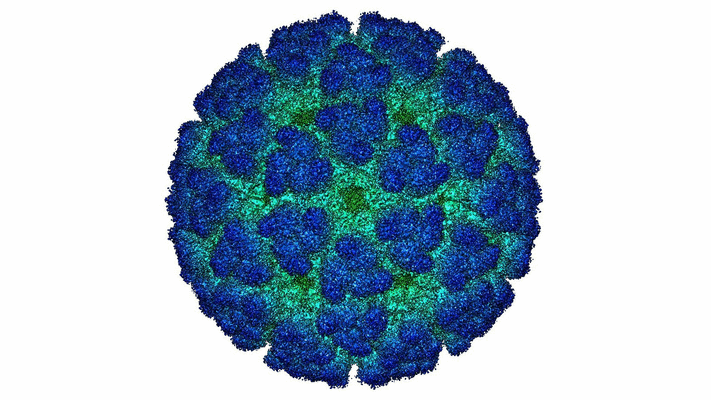Chikungunya virus causes high fever and severe joint pain and is transmitted to humans by the bite of infected Aedes mosquitoes mainly Aedes aegypti and Aedes albopictus. These mosquitoes can be identified by the white stripes on their black bodies and legs. They are aggressive daytime biters, with peak feeding activity at dawn and dusk. Its name derives from a Makonde word that translates to ‘disease that bends up the joints’, describing the posture of infected persons experiencing severe joint pain. CHIKV was first isolated from the blood of a febrile patient in Tanzania in 1953, and since then has caused numerous human epidemic. The largest documented outbreak of CHIKV disease occurred in the Indian Ocean islands and India during 2004-2007 affecting around 1.39 million people in India.
Symptoms:
The illness characteristically begins with rapid onset of joint pains and may or may not be accompanied by the following: muscle pain, high fever, conjunctivitis and a rash.
- Incubation period is 2-4 days.
- There is sudden onset of fever and, with it, a severe, crippling migrating, polyarticular arthritis. This is due to the virus invading and causing inflammation of the cartilage.
- Between the 2nd and 5th day of illness there is a macular or maculopapular rash, mostly on the trunk and limbs.
- There may be conjunctivitis and minor bleeding in the skin and eye.
- Most patients recover within a few days and death is a rarity. Arthritis may persist for rather longer, even several months or years.
Diagnosis:
Due to the similarity in symptoms CHIKV fever is often confused with dengue. The Serological testing for identification are enzyme-linked immunosorbent assays. More recently, indirect immunofluorescence has become available. Reverse transcriptase-polymerase chain reaction can also be used but the sensitivity is variable. Extreme care should be taken when obtaining blood samples and handling specimens.
Treatment:
Drug susceptibility: Currently, no specific antiviral treatment for CHIKV is available. Therapy is therefore purely based on the patient’s symptoms. Analgesics, antipyretics, and anti-inflammatory agents are the most appropriate treatments for the primary signs, which include fever and joint pain with swelling. The use of steroids and aspirin should be avoided. Movement and mild exercise tend to improve stiffness in the joints.
Susceptibility to disinfectants: No information specific to CHIKV; however, most lipid enveloped viruses are sensitive to 70% (v/v) ethanol, sodium hypochlorite, formaldehyde, glutaraldehyde, phenolics, iodophors, and quaternary ammonium compounds.
Prevention:
AVOID MOSQUITO BITES! The following will help to reduce your chances of being bitten:
- Wear long-sleeved shirts and long pants.
- Use mosquito repellent on exposed skin including: DEET, picaridin, IR3535 and oil of lemon eucalyptus.
- Ensure window/door screens are intact.
- Use A/C when available to make households less hospitable to mosquitoes
- Wear permethrin-treated clothing to repel and kill mosquitoes.
What should I do if I have symptoms?
Record symptoms and see a doctor. Protect yourself against further mosquito bites. If you are sick with CHIKV, avoiding bites will help to protect others from getting sick.
